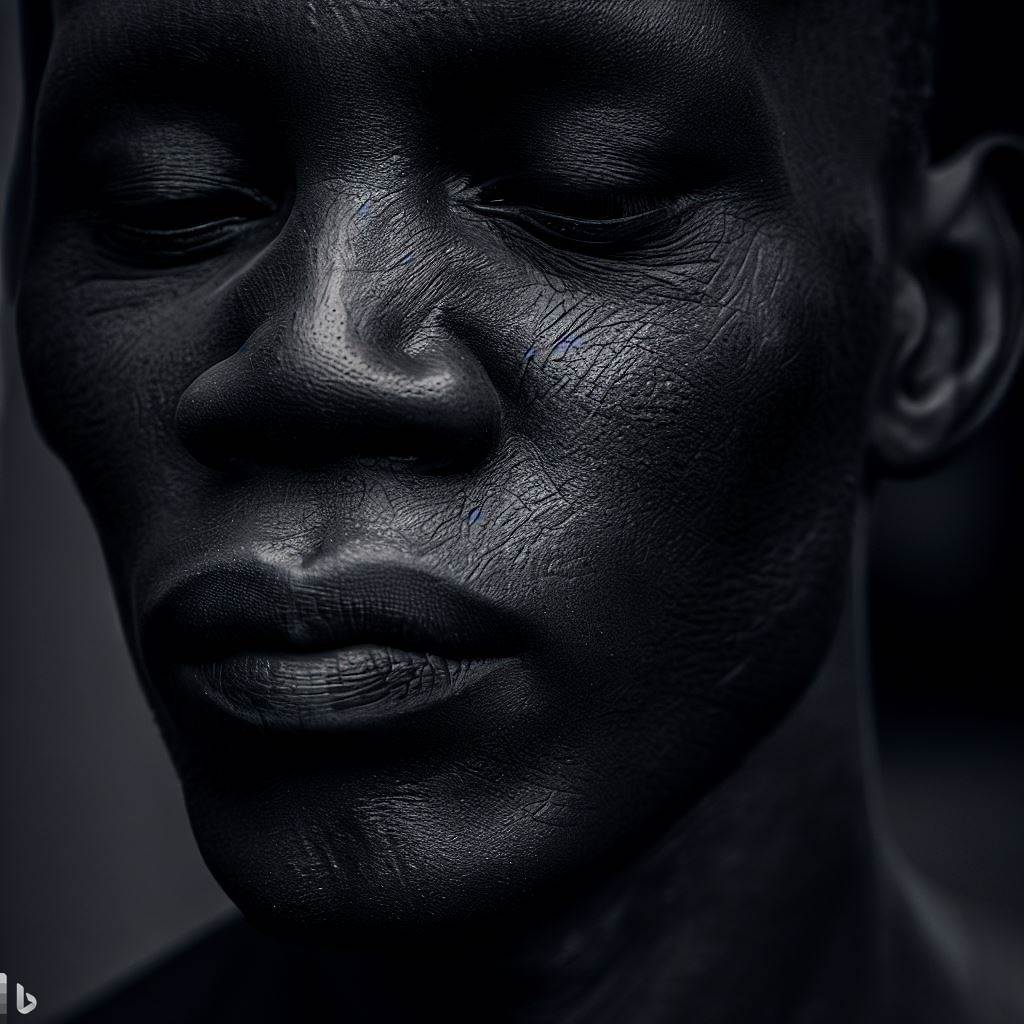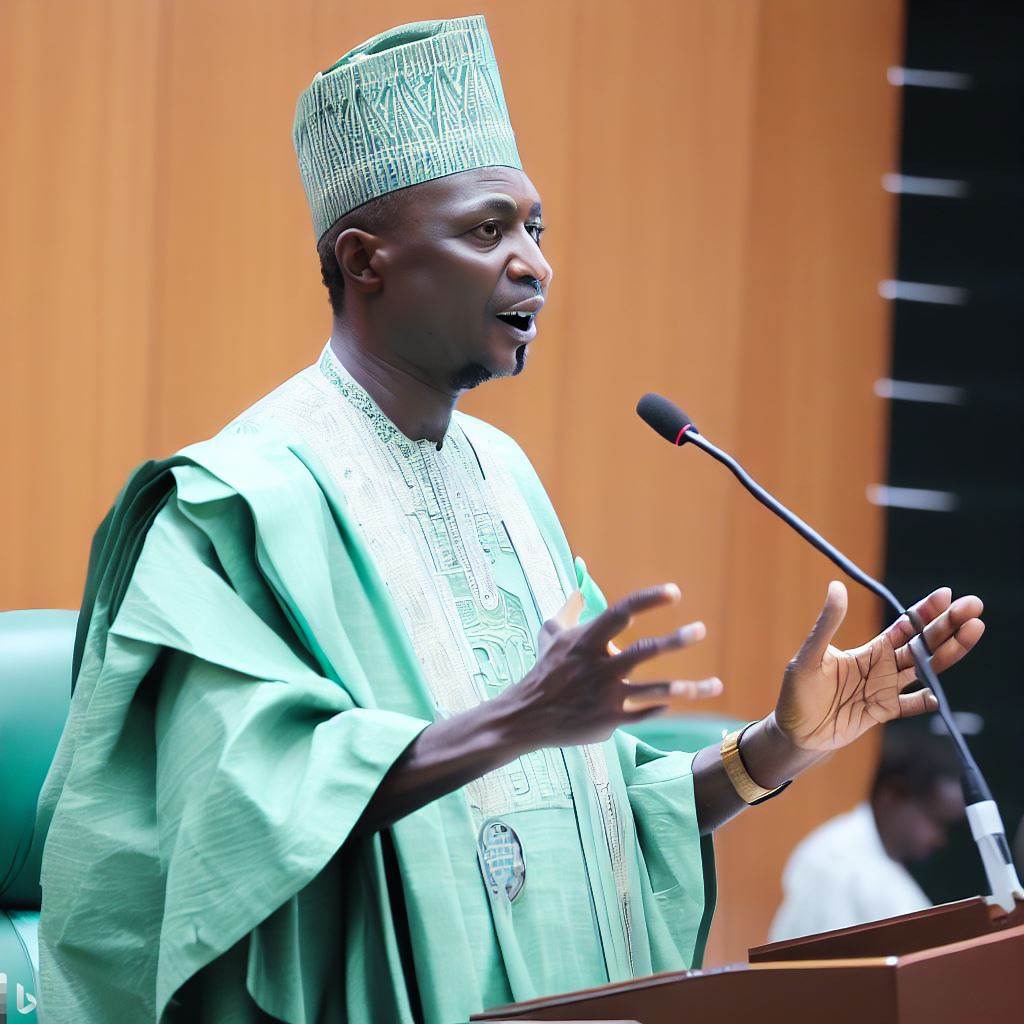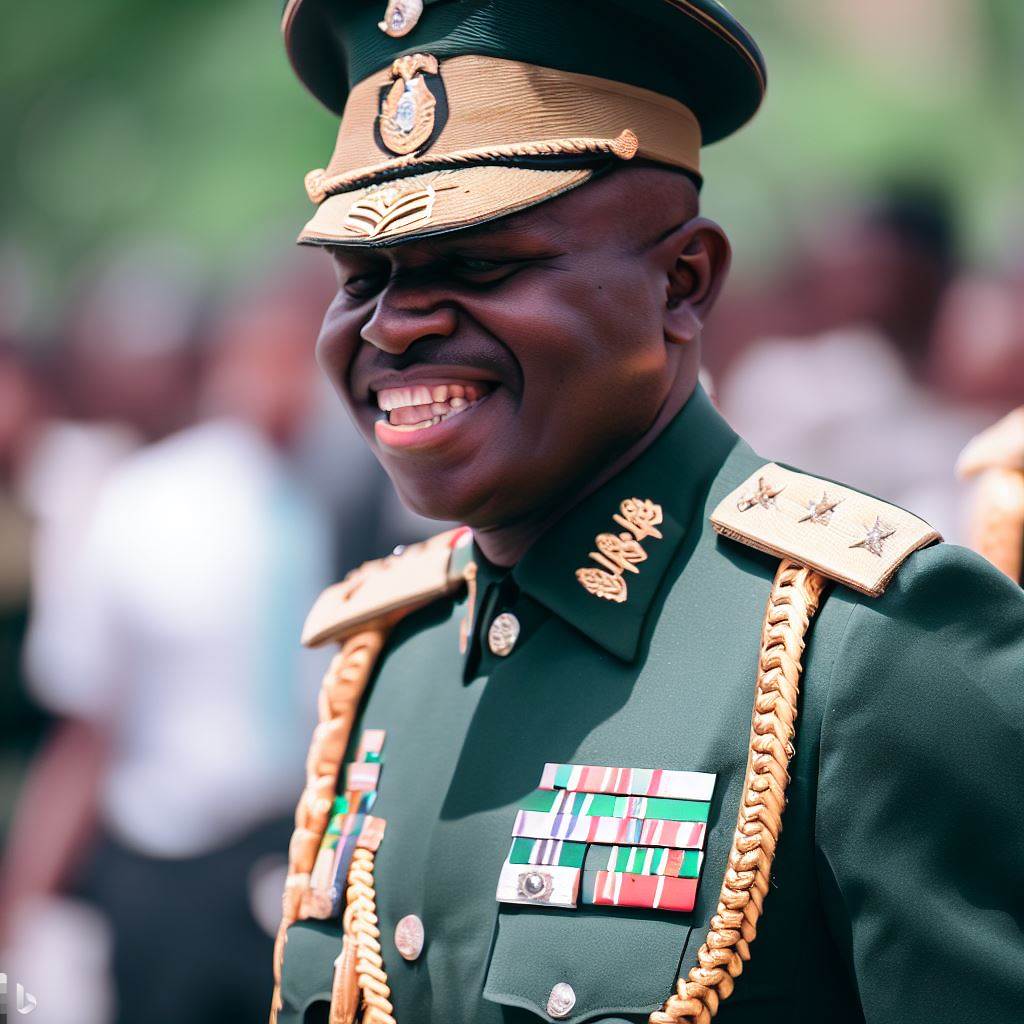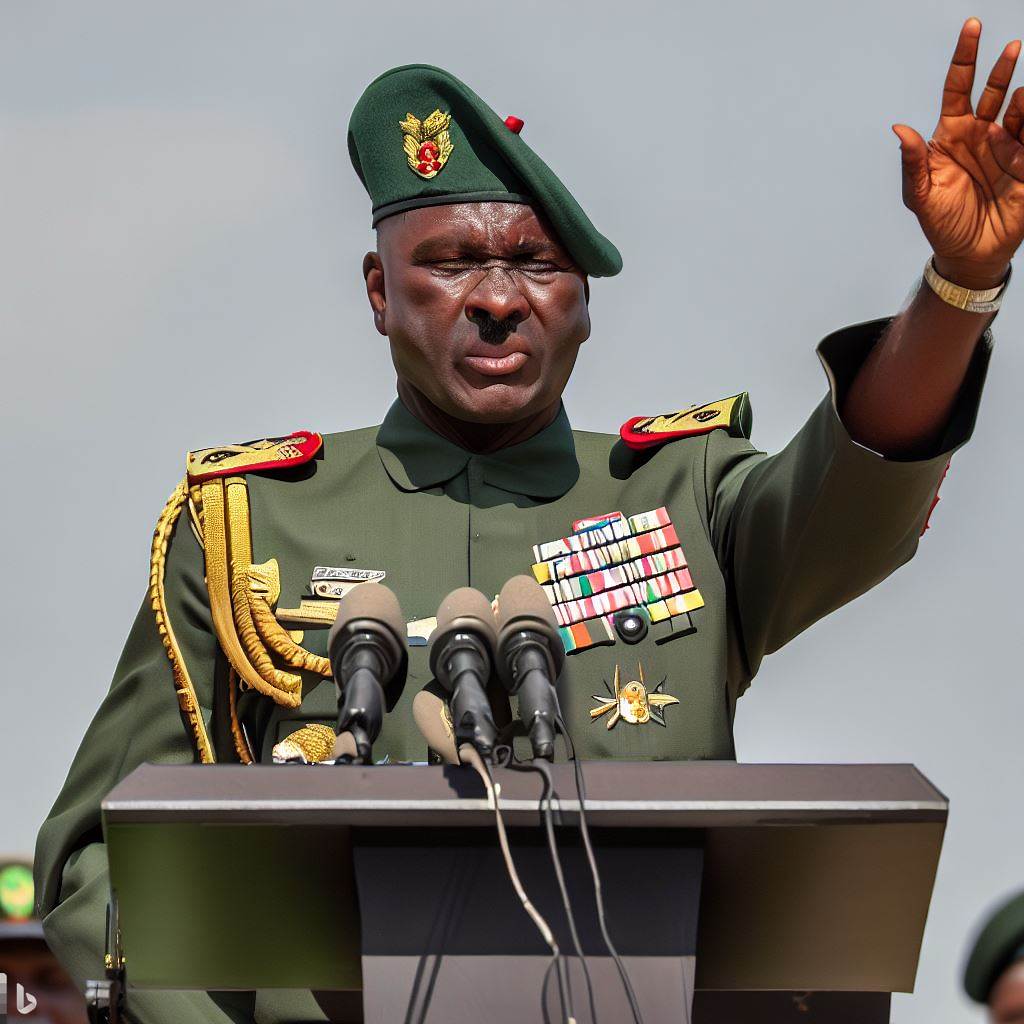Introduction
The Nigerian military has a long-standing history, with roots dating back to the pre-colonial era. It has been involved in numerous internal and external conflicts over the years.
Today, the military is a key component of Nigeria’s security architecture and plays a critical role in maintaining peace and stability in the country.
However, the role of women in the Nigerian military has been a topic of much debate and discussion.
Women have traditionally been excluded from military service, with the belief that it is a man’s job. However, in recent years, there has been a growing recognition of the need to involve more women in the military.
There are several reasons why it is important to discuss the role of women in the military.
Firstly, women make up half of the population and have a right to be represented in all spheres of life, including the military.
Secondly, research has shown that diverse teams perform better, and having more women in the military could improve its effectiveness.
Thirdly, there are unique challenges that women face in the military, and addressing these challenges could help to improve the overall functioning of the military.
In this blog post, we will explore the role of women in the Nigerian military, the challenges they face and the progress that has been made towards greater inclusion.
We will also look at the benefits of having more women in the military and the steps that can be taken to address the challenges they face.
Read: Analyzing The Architect’s Role in Nigeria’s Real Estate
Historical Context
- Nigeria gained independence in 1960, with a small number of women serving in the military as nurses and support staff.
- During the Nigerian Civil War (1967-1970), some women were used as spies and participated in combat roles, although they were not officially enlisted.
Overview of Women’s Role in Nigerian Military in the Past
- In 1977, the Nigerian government formally opened the military to women by creating the Women’s Corps.
- However, the Women’s Corps was limited to non-combat roles and low-ranking positions.
- Women were also not allowed to hold positions in combat arms, which limited their opportunities for advancement and career growth.
Progression over Time
- In 1990, the Nigerian government expanded women’s roles in the military by allowing them to serve in combat support roles.
- By 2010, women were allowed to serve in all branches of the military, including combat arms.
- Women have made significant strides in leadership positions within the military, with the first female Major General appointed in 1999 and the first female Air Vice Marshal in 2010.
Barriers and Challenges Faced by Women in the Military
- Sexual harassment and assault remain major issues for women in the Nigerian military, with many cases going unreported or ignored by leadership.
- Women also face discrimination and stereotyping, with some male colleagues believing they are not capable of performing certain tasks.
- There is also a lack of adequate accommodations for women, such as separate restrooms and living spaces.
- Additionally, some women face cultural and societal pressures to prioritize marriage and family over their military careers.
In summary, women in the Nigerian military have made significant progress over the years, despite facing significant barriers and challenges.
While the Nigerian government has made strides in expanding women’s roles in the military and promoting gender equality, there is still much work to be done to address issues like sexual harassment and stereotyping.
By continuing to support women in the military and advocating for their rights, Nigeria can continue to develop a strong and inclusive military force.
Read: Career Prospects for Young Architects in Nigeria
Current Status
Women have been an integral part of the Nigerian military since its inception, with their participation dating back to the pre-independence era.
Women constitute approximately 6% of the total military workforce in Nigeria, with a current estimated number of 3,500 women actively serving in the military.
Statistics on Women Representation in the Nigerian Military
- About 17% of the women in the Nigerian military serve as commissioned officers.
- 73% of these women are in the Nigerian Army, 22% in the Nigerian Air Force and 5% in the Nigerian Navy.
- In 2018, the Nigerian Army inducted 1,775 new soldiers, out of which 210 were females, indicating a rise in women representation.
Roles Available for Women in the Military
Women in the Nigerian military are offered the same opportunities and can participate in the same roles as men.
- Women can serve as combat officers, pilots, engineers, technical staff, and administrative staff.
- Women are also trained in peacekeeping processes and are deployed to international missions under the United Nations mandate.
- The Nigerian Military actively promotes female personnel development, providing on-the-job training, courses, and seminars for skill acquisition.
Achievements and Successes of Women in the Military:
Women in the Nigerian Military have achieved remarkable success in various capacities since their introduction into the system. Some of these accomplishments include:
- In 2019, the Chief of Naval Staff appointed Rear Admiral Itunu Hotonu as the new Navy Secretary, marking the first time a woman held such a position in the Nigerian Navy.
- The appointment of Air Vice-Marshal Olubunmi Oluyede as the first female Air Vice Chancelor of the Nigerian Defence Academy, Kaduna in 2020.
- The Nigerian Air Force decorated Warrant Officer Bassey Esther with a new rank of “Master Warrant Officer,” marking her as the first female Senior Non-Commissioned Officer (SNCO) in the Nigerian Air Force.
- The Nigerian Army Women’s Corps marked its 50th anniversary in June 2021. The Corps has contributed significantly to the Nigerian Military since its inception in 1971.
Women in the Nigerian Military have overcome historical, cultural, and political barriers to make significant progress in their professional careers and positively impact the society at large.
It is imperative to continually provide ample opportunities for women to further explore and develop their potential in line with Nigeria’s national defence priorities as it will yield more positive results in the future.
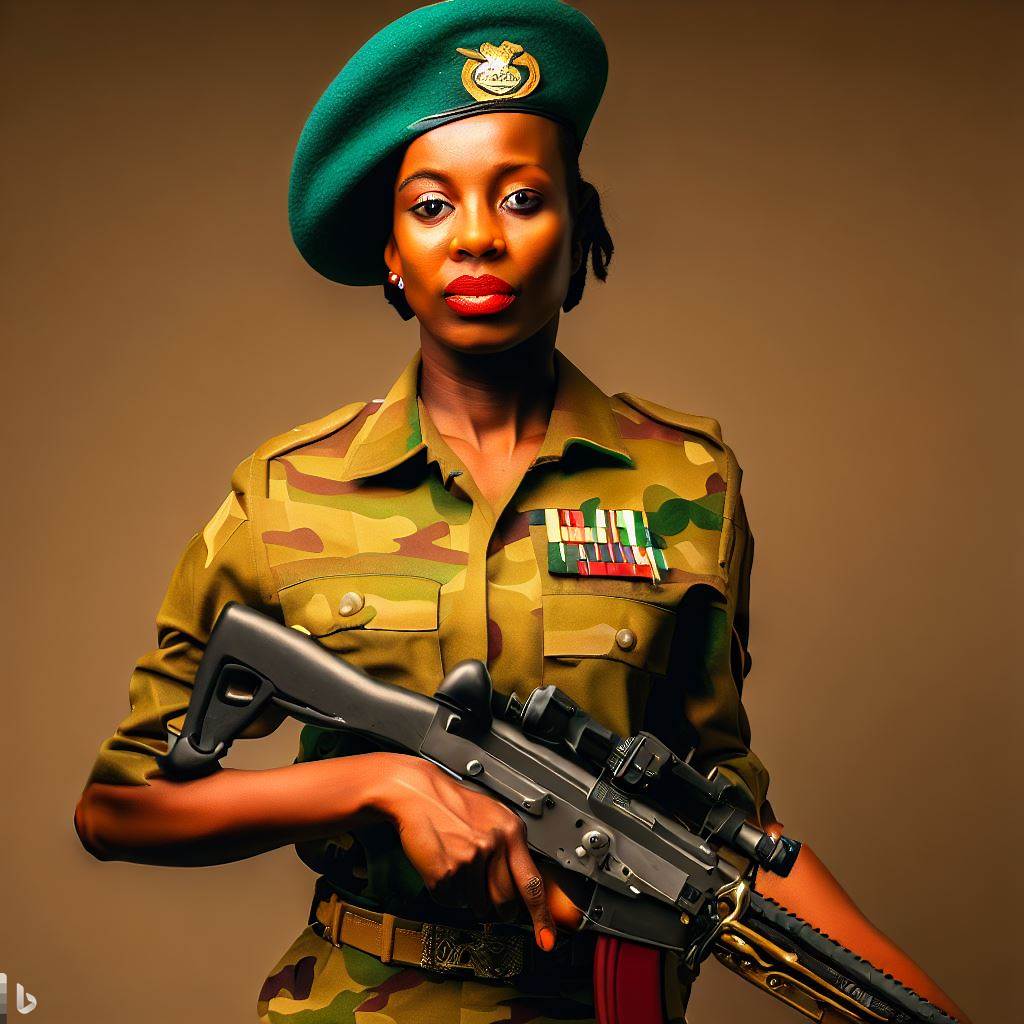
Benefits of Women’s Inclusion in the Military
Women have made significant contributions to the Nigerian military over the years. The inclusion of women in the military has led to various benefits that have positively impacted society as a whole in Nigeria.
Improved Diversity and Equality within the Military
The inclusion of women in the Nigerian military has led to improved diversity and equality within the institution.
Women bring a different perspective to the military, which can be valuable in decision-making processes. This diversity helps to break down gender stereotypes and creates a more inclusive environment for all personnel.
The Nigerian military has also witnessed improvements in gender equality since the inclusion of women. Women are now able to participate in combat and non-combat roles, which were once exclusively reserved for men.
This change has allowed women to showcase their capabilities in different areas of the military, leading to increased respect and recognition amongst their colleagues.
Fostering of Gender-Sensitive Approaches in Conflict Resolution
Inclusion of women in the military leads to gender-sensitive conflict resolution, fostering lasting and peaceful solutions.
Women engage uniquely, addressing gender-based violence, ensuring all parties’ voices are heard and none are left behind.
Positive Impacts on Nigerian Society as a Whole
The inclusion of women in the Nigerian military has had positive impacts on society as a whole.
Women broke down barriers in accessing professions, including the military, previously restricted to them. These changes have led to a more inclusive society where everyone has equal access to opportunities.
Women in the military challenge traditional roles, proving equal capabilities in combat. Gender equality extends to society.
Benefits include improved diversity, gender-sensitive conflict resolution, and positive impacts on Nigerian society.
Read: A Day in the Life of a Nigerian Military Officer
Overcoming Challenges
Current Efforts to Remove Barriers to Women’s Inclusion in the Military
Historically, the Nigerian military’s male dominance posed challenges for women aspiring to serve their country. However, recent efforts by the government and military leaders have begun to remove barriers to women’s inclusion.
In 2018, the Nigerian Defence Academy admitted female cadets, a milestone for gender equality. The military raises awareness of sexual harassment, with zero-tolerance policies and Response and Prevention units established.
Best Practices for Recruiting, Retaining, and Promoting Women in the Military
In order to truly integrate women into the military, it is important to not just remove barriers to entry but also provide support and opportunities for their success.
Some best practices for recruiting, retaining, and promoting women in the military include:
- Providing gender-sensitive recruitment materials and processes that avoid stereotypes and encourage women to apply.
- Establishing mentorship and support programs for women to help them navigate the challenges of the military environment.
- Offering flexible work arrangements, such as part-time or remote work, to help women balance their military duties with other responsibilities they may have.
- Ensuring women have access to leadership and promotion opportunities by considering diversity in promotion and appointment processes.
- Providing training and education programs that address gender bias, sexual harassment, and assault in the military.
Recommendations for Future Action
While progress has been made, there is still much work to be done to fully integrate women into the Nigerian military. Some recommendations for future action include:
- Establishing quotas or targets for the recruitment and promotion of women in the military to ensure progress is being made.
- Conducting research to better understand the experiences of women in the military and to identify any persistent challenges they may face.
- Establishing a dedicated office or body within the military to oversee gender equality initiatives and monitor progress.
- Continuing to raise awareness of gender bias, sexual harassment, and assault in the military through education and training programs.
- Collaborating with other countries and international organizations to share best practices and learn from their experiences.
Essentially, the Nigerian military has made significant strides in promoting women’s inclusion. However, more work remains.
Removing barriers, providing support, and promoting gender equality will leverage all Nigerians’ talents and contributions.
Read: The Evolution and History of the Government Structure of Nigeria
Conclusion
Women’s inclusion in the Nigerian Military is crucial for the overall development of the country’s security forces. The Nigerian government must continue to invest in recruiting, training and promoting women in the military.
Women play a vital role in maintaining peace and security in the country. They bring unique perspectives and skills to the table that are necessary for effective military operations.
Recognize challenges women face: gender-based discrimination, sexual harassment, and limited access to military positions.
Advocate for gender equality. Inclusion benefits effectiveness, success, and security objectives. Prioritize and invest in women’s military roles.

